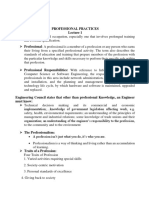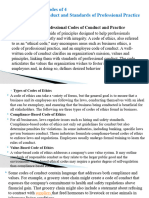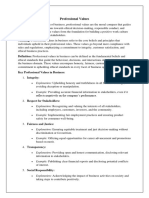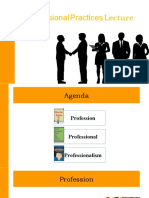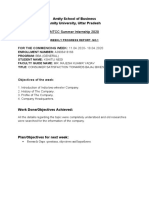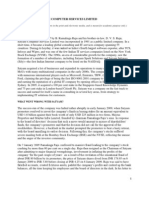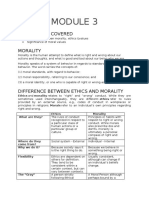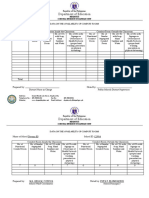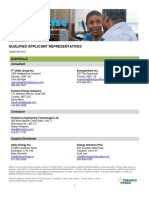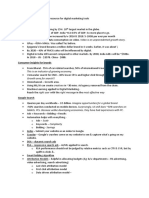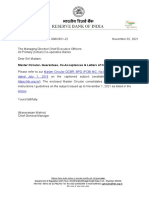MODULE 5
TOPICS TO BE COVERED
Personal values-Empathy, honesty, courage, commitment
Professional Values-Work ethics, respect for others
Its role in personality development
Character building-“New Self awareness”
PERSONAL VALUES
Personal values are the beliefs, principles or ideas that are important to you in
your life. Values are what you stand for in life -- they are often things that you
are for or against -- what you believe in and are willing to support and stand up
for.
EMPATHY
Empathy is the ability to mutually experience the thoughts, emotions, and direct
experience of others.
The ability to understand another person’s circumstances, point of view,
thoughts, and feelings is
empathy. When experiencing empathy, you are able to understand someone
else’s internal experiences.
HONESTY
Honesty refers to a facet of moral character and connotes positive and virtuous
attributes such as integrity, truthfulness, straightforwardness, including
straightforwardness of conduct, along with the absence of lying, cheating, theft,
etc. Honestly also includes being trustworthy, loyal, fair, and sincere.
ANY OTHER VALUE THAT AN INDIVIDUAL FOLLOWS IN
PERSONAL LIFE (OR FROM CORE VALUES) CAN BE WRITTEN
HERE.
PROFESSIONAL VALUES
Business-related beliefs or principles that guide professional behavior. Values
may reflect ethics, practices, standards and other norms within a commercial
environment.
1. Accountability
taking personal responsibility for all actions
following through on commitments for group work
coming to class prepared to learn
� attending class regularly and taking responsibility for any missed
work/information
requesting help when needed from faculty, Advising, Disability Resource
Centre, Learning Skills, Counselling
looking for solutions rather than placing blame
2. Integrity
maintaining academic honesty in all endeavours
taking credit only for my own work (not that of others)
collaborating with others on assignments/projects only when authorized to
do so
using classroom/lab resources wisely
being respectful of lab policies
3. Responsibility
completing all assignments on time
arriving for all classes and program activities prepared and on time
notifying instructors of absences, late arrivals, early departures
using time-management strategies-calendars, priority (to do) lists
turning off cell phones and other personal electronic devices during class
time
using computers in an authorized manner
4. Respect
treating peers, guests, instructors and staff with the appropriate level of
respect whether in person, in writing or in electronic communications
demonstrating acceptance of diverse groups
not disrupting/interfering with the learning of other students (not talking,
texting, coming late, leaving early, doing off-task work)
5. Professional Behaviour
using language and terminology appropriate for learning environments (no
foul language, minimal use of slang or abbreviations)
dressing in a neat and appropriate manner for the environment
not using strong scents, perfumes or colognes
carrying ourselves in a manner that presents a positive image
6. Professional Attitude
being positive
� communicating in a sincere manner
willingly accepting constructive feedback
maintaining composure under professional or personal pressure
7. Adaptability
adapting to changes in schedule and procedures
exhibiting an open attitude and being receptive to new ideas
experimenting with new technique for completing tasks
8. Continuous Learning
seeking out learning opportunities
seeking clarification/asking relevant questions
contributing to class/online discussions
seeking new methods of learning tasks
9. Teamwork
listening to the views of others
giving and receiving feedback in a positive manner
managing conflict constructively and professionally
being committed to tasks
doing my share of work
completing assigned group tasks on time
contributing ideas to projects
communicating with team members regarding tasks, due dates, and
meetings
10. Confidentiality
maintaining the confidentiality of classmates and clients
not discussing items a person shared confidentially with me
not gossiping in person or on social networking sites










